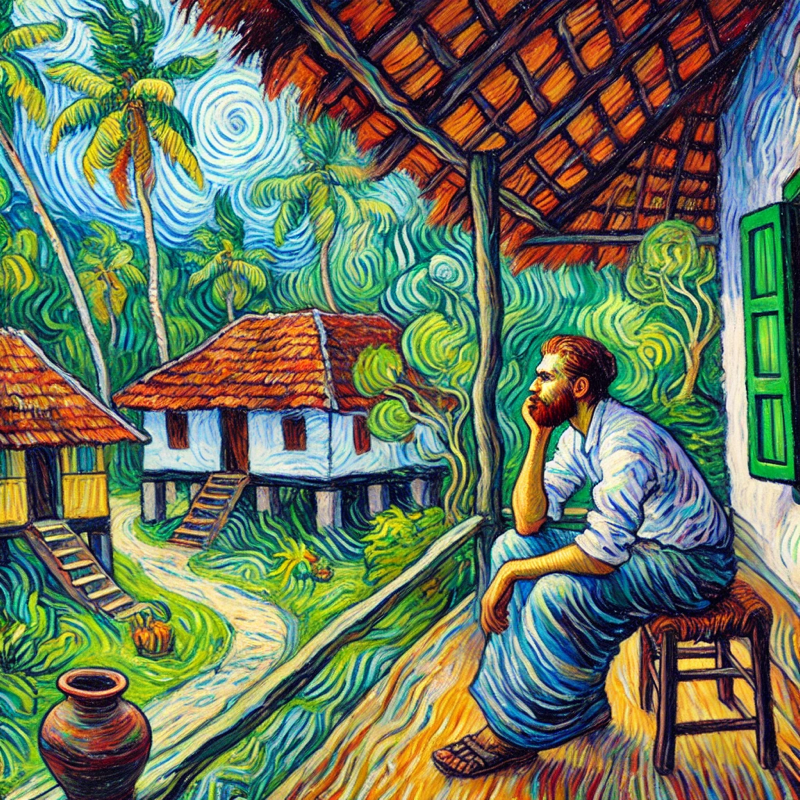T.J. Joseph: A Life Marked by Stigma and Resilience
T.J. Joseph faced intense stigma after a controversial incident that altered his life and deeply impacted his family. This post explores the challenges he endured, how he navigated them, and the lessons we can learn about resilience, societal judgment, and forgiveness.

Introduction
Stigma has the power to alter lives, isolate individuals, and test the very foundations of one’s resilience. The case of T.J. Joseph, a professor from Kerala, India, is a harrowing example of how social stigma can manifest in its most brutal form. Joseph faced severe repercussions for an academic question he framed, leading to violent consequences, ostracization, and deep personal loss. His story is one of pain, endurance, and ultimately, a testament to the power of inner strength in overcoming stigma.
The Stigma Faced by T.J. Joseph
In 2010, T.J. Joseph, a Malayalam professor at Newman College, Thodupuzha, included a passage in an exam paper that some interpreted as blasphemous. The question was based on a passage from a book written by filmmaker P.T. Kunju Muhammed, but it was misrepresented by extremist groups as an insult to a particular religion. What followed was an unprecedented wave of stigma and violence. Joseph was brutally attacked by fundamentalists who severed his right hand in retribution.
While the physical assault was horrific, the social and professional stigma that followed was equally devastating. The college he worked for dismissed him, succumbing to external pressure. Even after he underwent multiple surgeries and began his recovery, society’s judgment did not wane. Instead of support, he and his family faced rejection from their own community, friends, and even the institution that was meant to stand by its educators. He was denied financial assistance and job opportunities, further deepening his struggles.
How He Handled the Stigma
Despite being physically maimed and emotionally shattered, T.J. Joseph exhibited extraordinary resilience. Initially, he struggled with despair, especially after his wife, Salomi, unable to bear the social pressure and humiliation, took her own life. This tragic loss further deepened his suffering and brought to light the profound psychological toll stigma can have on individuals and their families.
However, rather than succumbing to bitterness or hatred, Joseph turned to writing as a means of healing and reclaiming his voice. His memoir, A Thousand Cuts, candidly details his pain, injustice, and how stigma shaped his life. He used his experiences to shed light on the consequences of blind fanaticism and intolerance, urging society to reflect on the weight of judgment and the harm it inflicts on innocent individuals.
Joseph’s strength also came from his ability to forgive. In a powerful act of defiance against hatred, he chose not to hold resentment against those who attacked him. Instead, he focused on moving forward, gradually rebuilding his life through introspection, education, and advocacy.
Lessons We Can Learn
- Stigma Can Have Devastating Consequences – The impact of stigma extends beyond social alienation; it can lead to irreversible personal and familial losses. It is crucial to understand the weight of our judgments and the way they shape others’ lives.
- Institutional Abandonment Intensifies Suffering – The lack of support from institutions like Joseph’s college highlights how organizations often prioritize public perception over ethical responsibility. Standing by individuals facing undue stigma is essential for a just society.
- Resilience and Forgiveness Are Powerful Tools – While revenge or bitterness might seem natural responses to injustice, Joseph’s approach of resilience and forgiveness illustrates an alternative path—one of inner peace and progress.
- Support Systems Are Crucial – The tragedy of Joseph’s wife’s death underscores the need for strong emotional and psychological support. When people face social stigma, they need more compassion, not isolation.
- Dialogue Over Violence – The entire episode reflects the dangers of extremism and the lack of space for reasoned discussion. Societal conflicts should be addressed through dialogue rather than retribution.
Conclusion
T.J. Joseph’s story is a poignant reminder of how stigma can devastate lives, but also how resilience can pave the way for healing. His ability to rise above anger, document his experiences, and continue advocating for justice showcases an inspiring example of inner strength. His journey teaches us that while stigma can be a powerful force, it does not have to define one’s destiny. Instead, with courage and resilience, individuals can reclaim their narratives and move forward with dignity.
